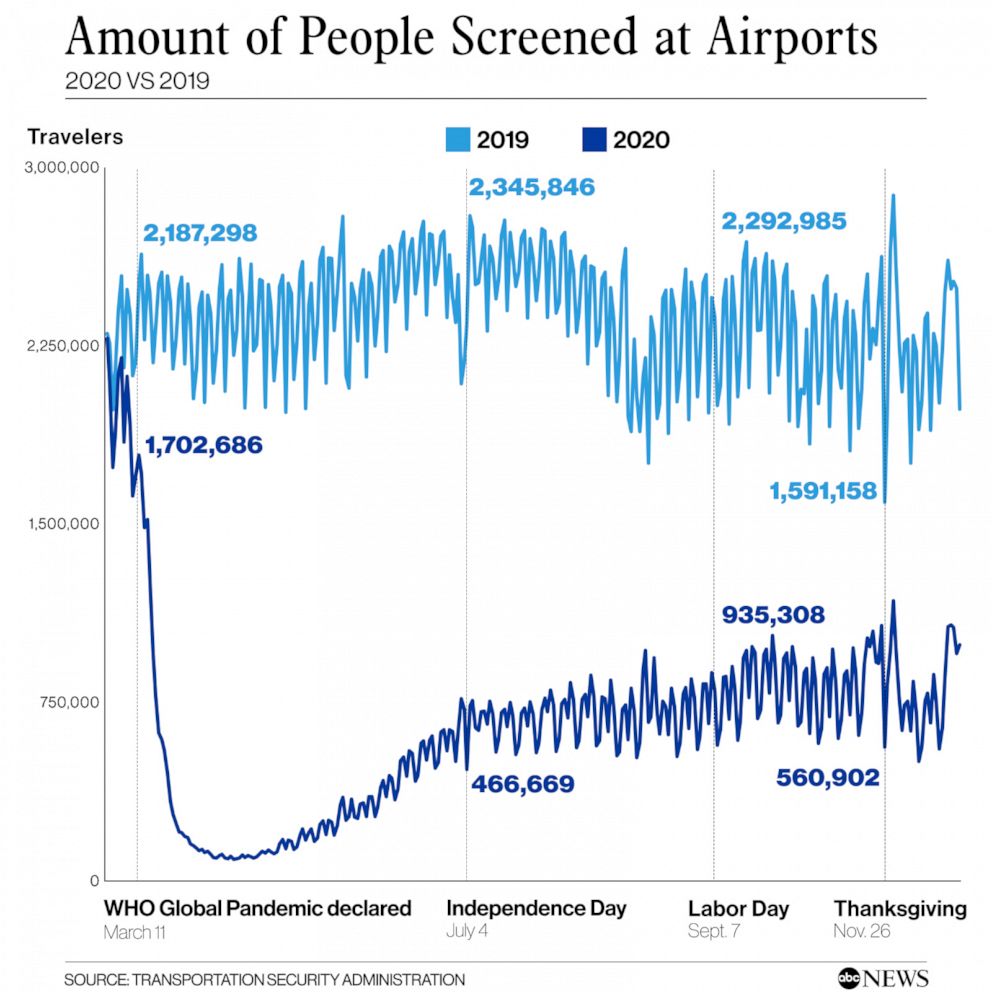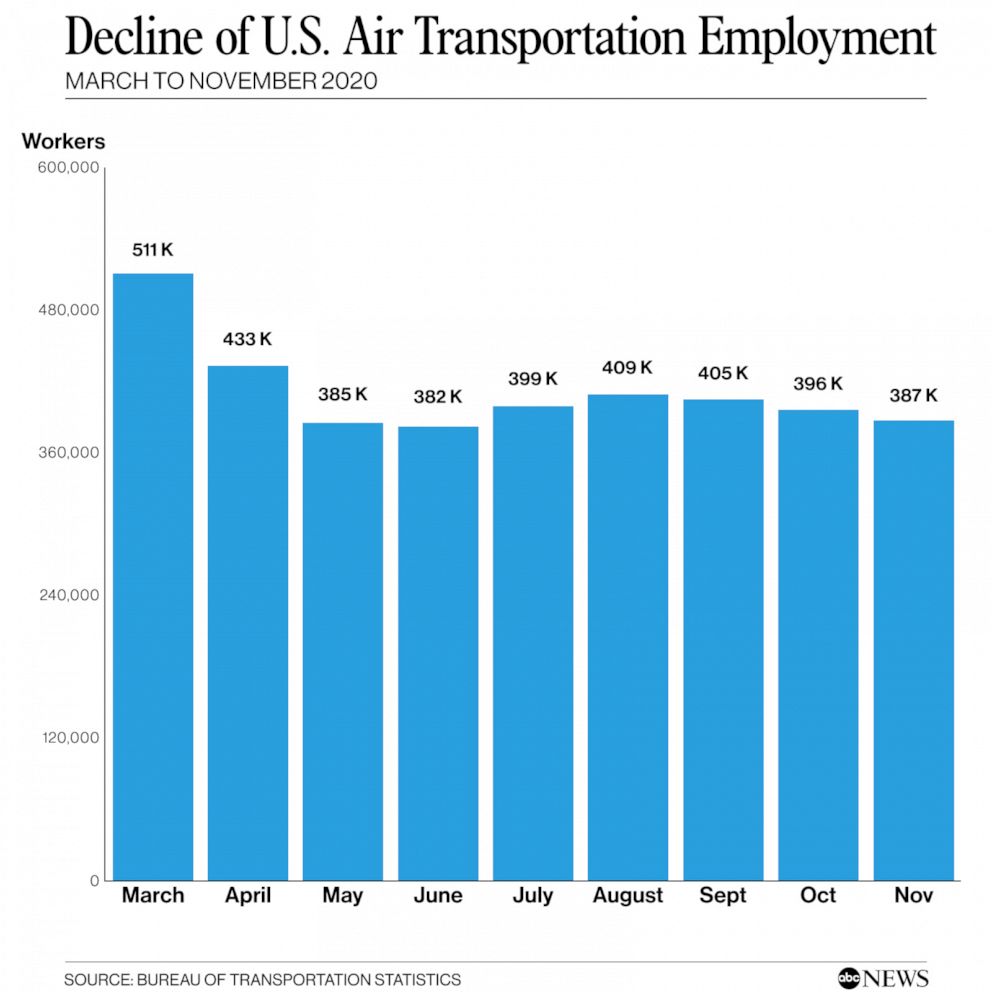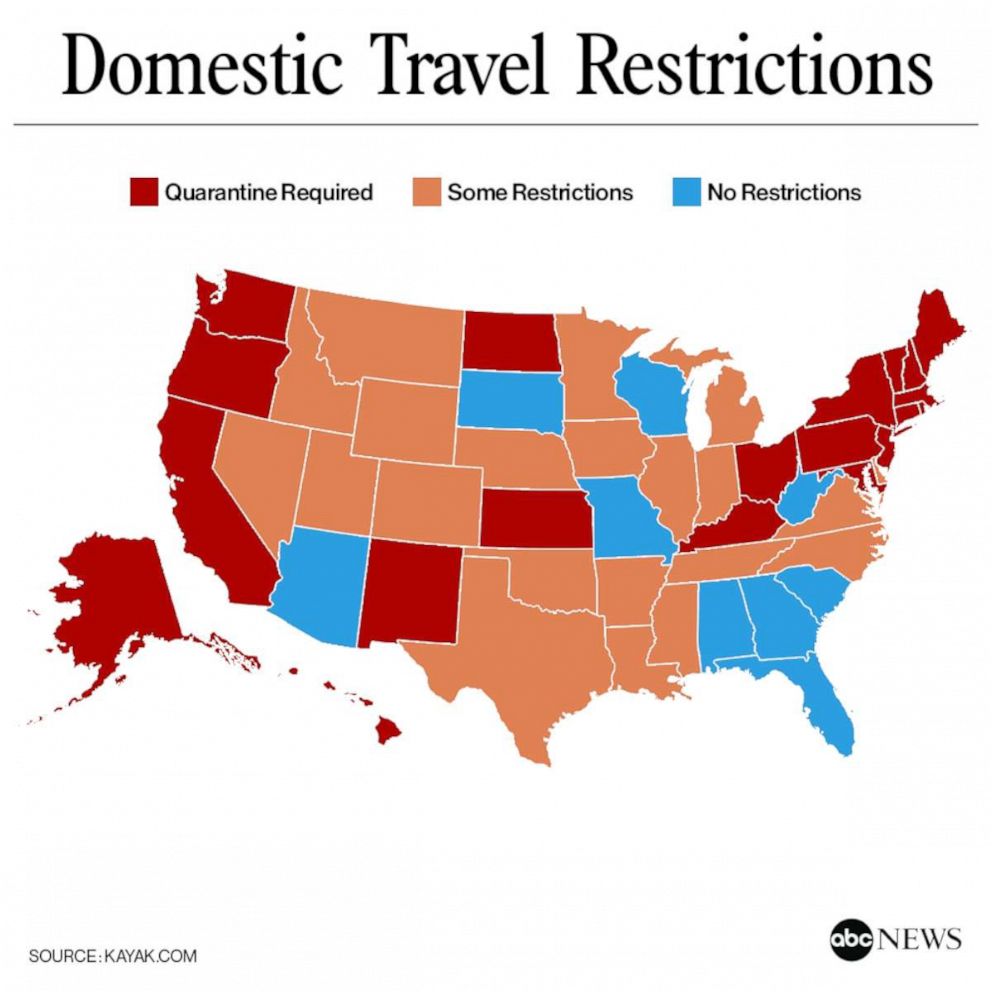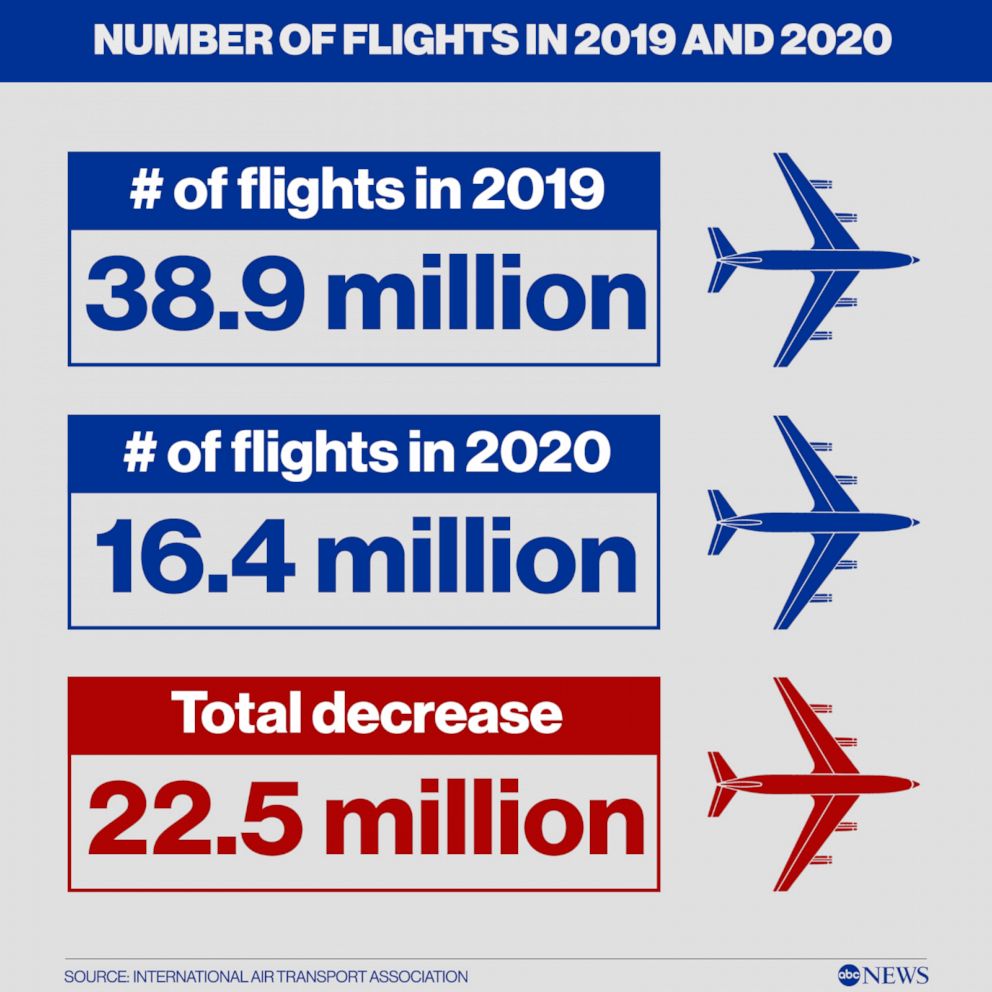Air travel hits new high during holidays, but experts say recovery will take years
The number of flights in 2020 was nearly slashed in half compared to last year.
Despite warnings against travel and a surge in COVID-19 cases, air travel hit a new pandemic high during the holidays with Transportation Security Administration (TSA) officers screening more than 1.2 million people at airports nationwide on Sunday, Dec. 27.

The number of fliers has decreased dramatically since the pandemic began, plummeting to a low of 87,534 on April 14. Although the holiday numbers are indications of recovery, experts say air travel won’t return to pre-pandemic levels until 2024.
Over the course of this year, U.S. airlines have lost almost $40 billion on a pre-tax basis. In March, carriers received $25 billion with an agreement to accept limits on executive compensation, eliminate stock buybacks and dividends and refrain from laying off employees until the end of September.
When the federal aid expired in October, airlines furloughed tens of thousands of employees. U.S. airlines went from employing over 500,000 workers in March to over 300,000 in November.
With the latest stimulus package, U.S. airlines will receive $15 billion. United Airlines and American Airlines both said they will begin to call back furloughed workers. While this gives a bit of hope to the industry, air travel recovery is still obstructed by travel restrictions and quarantine requirements.

Many countries' borders remain closed to U.S. citizens. International travel among U.S. carriers is still down around 70% compared to last year, according to Airlines for America (A4A), an industry trade organization that represents major U.S. airlines.
There are domestic travel restrictions that have affected demand within the U.S. as well with 21 states issuing quarantine requirements, according to online travel service Kayak.

After New York Gov. Andrew Cuomo announced travelers from hot spot states would have to quarantine for two weeks, United executives said they saw a "noticeable decline" in demand for travel to New York.
Airlines are now pushing for an agreement on pre-flight testing protocols that could replace restrictive quarantine measures and boost passenger confidence.
Most recently Delta Air Lines established the first quarantine-free travel corridors between the U.S. and Europe as airlines continue to turn to testing as a way to safely reopen travel routes that have been cut amid the pandemic.
In September, United Airlines saw passenger loads double after the airline established a testing protocol within the U.S. that allowed passengers traveling from San Francisco to Hawaii to bypass quarantine restrictions.

As vaccine distribution begins globally, industry leaders are calling for a global and standardized system to ensure travelers know the latest testing requirements and can share their vaccination status. The International Air and Transport Association (IATA), a trade organization that represents airlines worldwide, is pushing for a Travel Pass that would “validate and authenticate all country regulations regarding COVID-19 passenger travel requirements.”
"The good news is we have the vaccine on the horizon," Perry Cantarutti, Delta's senior vice president of alliances and international, said. "But we will have passengers who some have the vaccine, some who maybe have immunity from having had COVID, others who have been through testing. We're going to need to be able to accommodate all of those kinds of travelers in order to reopen international travel."
While U.S. carriers have not said if they will require passengers to be vaccinated, the new normal of travel we know in 2020 will continue. Masks will still be required on planes and in airports, middle seats will remain blocked on certain flights, and enhanced cleaning protocols will continue.




